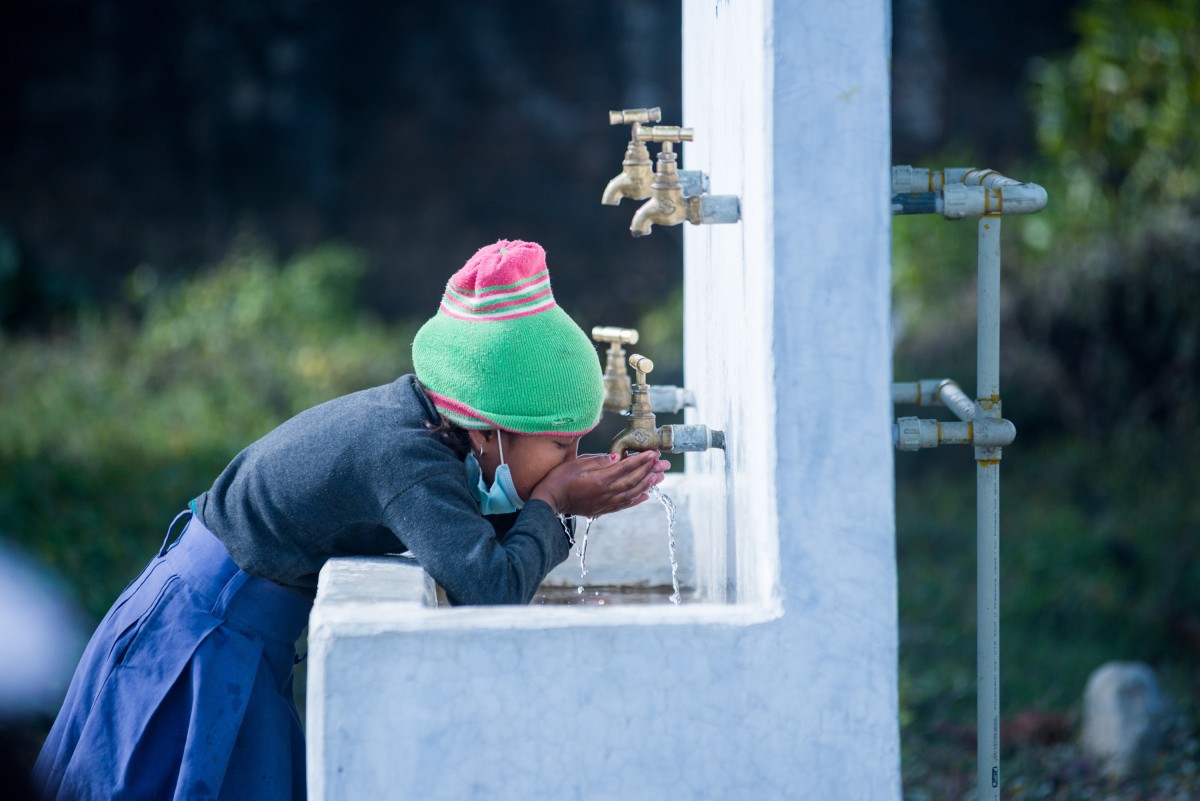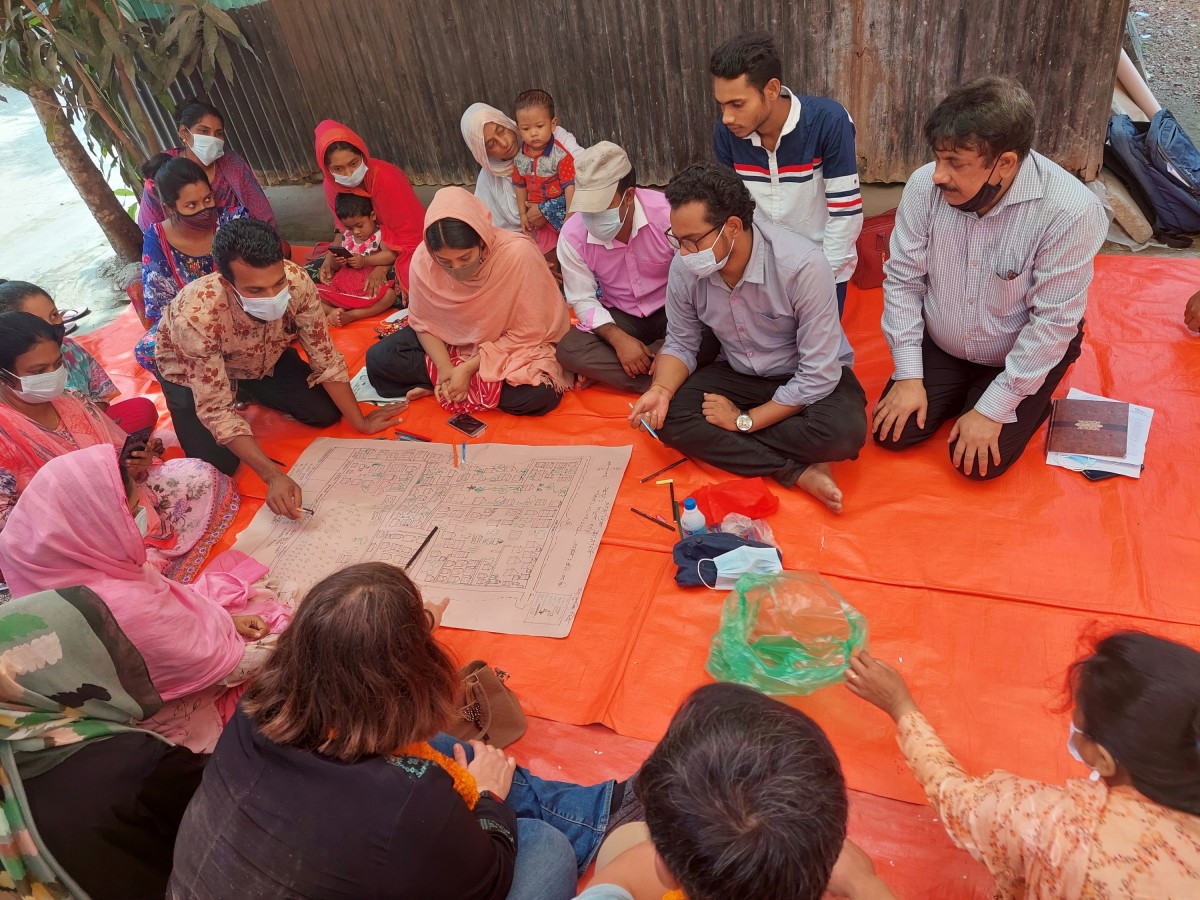WASH SDG Consortium: learning and sharing key to achieving SDG goal for water and sanitation
Great things have been happening lately: as learning and sharing between partners and cross programmes have become part of the DNA of the WASH SDG Consortium, the impact of the programme on the access and use of water, sanitation and hygiene behaviour is about to grow substantially. Pragati Bajracharya, programme officer for Simavi in Nepal, explains in this column why she is ready for more.

Learning to achieve greater impact
On the 21st of March, on the brink of World Water Day, an important event took place in Hotel Himalaya in Kathmandu, Nepal. WASH Alliance led by Simavi, together with consortium partners SNV and Plan International organised a national level learning and sharing workshop. More than 30 organisations participated, ranging from international and local NGO’s, government departments, private sector consultants to the Federation of Water Supply and Sanitation Users in Nepal. They were all ready to directly learn from each other and share their challenges, best practices and innovations. The goal: accelerate learning by not containing it within separate programmes or sectors but sharing and replicating these learnings in order to achieve greater impact.
Dashboard for better access to WASH data
The workshop turned out a major success. Government official Rajit Ojha, from the Department of Water Supply and Sewerage Management, kicked off with a presentation on the WASH Plan development process, and the NWASH app and dashboard, that holds data on all the WASH plans that have been developed so far by municipalities. This gives a much more accurate picture of the areas that still lack access to water, sanitation and hygiene services and helps the government to prioritise them. Previously, many surveys and data collection were conducted but the data remained with the respective parties. Now, everyone can access that data through the NWASH dashboard.
Involvement of Municipalities essential
Madan Bhandari from Plan International shared a gender transformative approach to assess the level of women’s leadership and participation of the community in WASH decision making in order to improve gender equality. Anil Maharjan from the Nepalese NGO ENPHO got the attention of government official Rajit Ojha with his explanation of the challenges that arise while developing WASH plans. One of these challenges is the lack of enumerators with technical knowledge to collect the data at the local level. Another one is the lack of data on existing water supply schemes with their respective user committees. Budget constraints and confusion about the process also remain an issue. A key learning is that the involvement and ownership of the WASH plan process by the municipalities is essential from the very beginning. For this having a dedicated WASH focal person or even a separate WASH unit is necessary.
New tools to aid water user committees
The importance of developing an asset management plan for the sustainability of water supply systems was discussed, since it is a well-known fact that only 25% of water supply schemes in Nepal are functioning. This process should be participatory and take gender equality, disability and social inclusion into account to be truly effective. Serish Dhital from Smart-Tech Solution presented different tools that are being developed to aid water user committees: a web dashboard, a mobile app and an e-learning module. There was so much interest in these new tools that the audience requested a separate session about it.
Coaching water and sanitation entrepreneurs
New developments in WASH for schools and health care were also discussed: the achievements of the WASH FIT tool, successful health care waste management practices, and indicators developed by SNV on school sanitation and hygiene promotion. Private sector development was discussed by Sagar Chapagain from Biruwa Adviser, who are working in over 40 districts and coaching more than 750 entrepreneurs. Raju Shrestha from SNV and Mingma Sherpa, country coordinator of WASH Alliance Nepal from Simavi presented case studies on building faecal sludge treatment plants and sourcing funds for it.
Bringing experts together helps to accelerate progress
Since the WASH SDG target of ensuring access to water and sanitation for all by 2030 is still a big challenge for Nepal (and other countries), bringing experts in the WASH Sector together helps to accelerate the work that remains to be done. This first learning and exchange workshop in Nepal provided a kick-start. Two more are already in the books for December 2022 and June 2023.
Exchange visit between Nepal and Bangladesh
Another great example of working together for greater impact was the recent WASH SDG Nepal – Bangladesh exchange, where experts literally crossed borders to learn from each other. The teams of three sub-programmes visited each other’s programmes areas. These visits resulted in actual improvements in the different sub-programmes, since lessons related to behaviour change communication, demand creation, public and private sector involvement were taken home and implemented. More information on the exchange visit and the developed joint statement can be found here: https://wash-alliance.org/news/jointstatement/

WASH SDG Consortium as an incubator for innovation
By facilitating this process, the WASH SDG Consortium has been proven an incubator for innovation and impact. Let’s not waste our own learnings and the momentum that has been created within the Consortium. We have the tools, the willingness and the contacts, now we can grow this even bigger.
Pragati Bajracharya, programme officer for Simavi in Nepal


